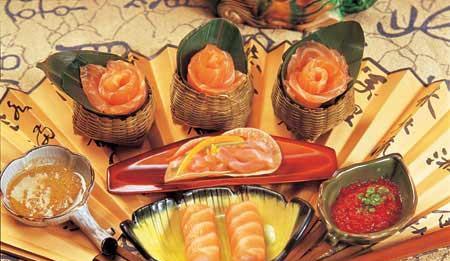Since ancient times, China has been circulating the famous saying that "the people take food as the sky", which shows that the ancient people paid high attention to food, and also reflected the Han people's pursuit of food culture. However, in the period of ancient feudal society, it was not easy for ordinary people to eat enough, and it was impossible to pick and choose food. But for those feudal emperors, as the sons of the great dynasty, they are already very particular about eating, and it is also very important to meet their own wishes. Basically, what the emperor wants to eat and how to eat it is different in each dynasty, and the emperor's eating habits have become the talk of people after dinner.

There were many kinds of diets in the Han and Tang dynasties. The Han and Tang Dynasties are the representatives of the prosperity in feudal society, not only economic prosperity, open thinking, but also the speed of cultural development is also very fast, through the cultural integration with the outside world, there are many food cultures also introduced to the Central Plains at this time. Before the Han Dynasty, the types of diet were very limited, only vegetables and fruits in the Central Plains, after the Han and Tang Dynasties, people began to introduce foreign foods to enrich their table culture, and slowly the types increased.
During the reign of Emperor Wu of Han, Zhang Qian was ordered to go to the Western Regions, and after he completed his mission, he also brought back coriander, sesame seeds, carrots and other foods from the Western Regions, which gave Emperor Wudi of Han more choices when eating. Moreover, according to folklore, Emperor Wudi of the Han Dynasty was very fond of eating coriander, and many dishes he had to put coriander to meet his appetite. Compared with the Han Dynasty, the foreign exchanges during the Tang Dynasty were more extensive and frequent, many Indian foods and dishes spread to the Central Plains, and the dining methods of ethnic minorities from the northern ethnic minorities and other parts of the country also flowed into the Central Plains in large quantities, so there were many more food varieties on the emperor's table.
In addition to these diversified factors, since the Tang Dynasty, the seasonality of the emperor's diet has been reduced to a minimum, and those in the palace will do everything possible to get ice cubes to ensure the freshness of the ingredients, so the emperor can eat anti-seasonal food in many cases. In addition, since the Han Dynasty, a complete food preservation system has been formed, some people have worked hard for the emperor's diet, and when the number is the largest, tens of thousands of people are busy for the emperor's meal, which can be described as a huge scene.
In the Ming Dynasty, because Zhu Yuanzhang was from the grassroots, he was very much advocating eating coarse grains on the table, so many civilian diets came to the emperor's table, although it has been protested by the imperial dining room, but Zhu Yuanzhang is happy to do it.